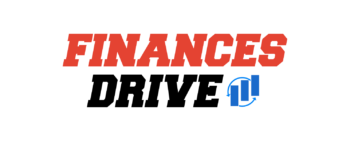As we step into 2024, the world of online trading continues to evolve, offering investors a wide array of platforms tailored to different trading styles and needs. Whether you’re a seasoned trader or just starting, choosing the right trading platform is crucial for success. In this article, we’ll explore the top 10 trading platforms for 2024, highlighting their features, strengths, and potential drawbacks to help you make an informed decision.

- MetaTrader 4 (MT4)
Overview
MetaTrader 4 remains a favorite among forex traders for its robust trading capabilities and user-friendly interface. It offers advanced charting tools, multiple order types, and automated trading through Expert Advisors (EAs).
Key Features
- Advanced Charting Tools: Customizable charts with a variety of technical indicators.
- Automated Trading: Use of Expert Advisors to automate trading strategies.
- Security: Encrypted data and secure logins ensure safe trading.
Pros and Cons
- Pros: Highly customizable, vast online community, excellent for forex trading.
- Cons: Limited asset classes, older interface compared to newer platforms.
- MetaTrader 5 (MT5)
Overview
Building on the success of MT4, MetaTrader 5 offers a broader range of asset classes, including stocks, commodities, and cryptocurrencies, along with more advanced tools and a cleaner interface.
Key Features
- Expanded Asset Classes: Trade forex, stocks, commodities, and cryptocurrencies.
- Enhanced Charting: Additional timeframes and more technical indicators.
- Integrated Economic Calendar: Stay updated with market news and economic events.
Pros and Cons
- Pros: More assets to trade, improved interface, built-in economic calendar.
- Cons: Steeper learning curve for beginners, fewer brokers support MT5 compared to MT4.
- TD Ameritrade’s thinkorswim
Overview
TD Ameritrade’s thinkorswim platform is a top choice for U.S. traders, especially those focused on options trading. It offers professional-level tools and research capabilities.
Key Features
- Advanced Trading Tools: Sophisticated charting, backtesting, and paper trading.
- Education Resources: Extensive library of educational materials and webinars.
- Mobile App: Full-featured mobile app for trading on the go.
Pros and Cons
- Pros: Comprehensive tools for advanced traders, strong educational resources.
- Cons: Overwhelming for beginners, limited to U.S. clients.
- eToro
Overview
eToro is well-known for its social trading features, allowing users to follow and copy the trades of successful traders. It’s a great platform for beginners and those interested in cryptocurrencies.
Key Features
- Social Trading: Copy trades from top investors.
- Crypto Trading: Wide selection of cryptocurrencies available.
- User-Friendly Interface: Simple and intuitive platform design.
Pros and Cons
- Pros: Social trading, strong crypto offering, easy-to-use interface.
- Cons: High spreads, limited research tools.
- Interactive Brokers
Overview
Interactive Brokers is a go-to platform for professional traders and institutions, offering a wide range of assets, low commissions, and sophisticated trading tools.
Key Features
- Global Market Access: Trade on over 135 markets in 33 countries.
- Low Commissions: Competitive pricing with volume discounts.
- Powerful Trading Tools: Advanced order types, risk management tools, and algorithmic trading.
Pros and Cons
- Pros: Wide market access, low trading costs, powerful tools.
- Cons: Complex platform, high minimum deposit for some accounts.
- Robinhood
Overview
Robinhood has gained popularity for its commission-free trading and user-friendly mobile app, appealing primarily to younger and beginner investors.
Key Features
- Commission-Free Trading: No fees on stock, ETF, and options trades.
- Fractional Shares: Invest in expensive stocks with as little as $1.
- Cryptocurrency Trading: Access to popular cryptocurrencies.
Pros and Cons
- Pros: No trading fees, simple platform, easy access to crypto.
- Cons: Limited research and analysis tools, no retirement accounts.
- Fidelity Investments
Overview
Fidelity is known for its strong customer service, extensive research tools, and zero-fee index funds, making it an excellent choice for long-term investors.
Key Features
- Zero-Fee Funds: No expense ratio on several index funds.
- Comprehensive Research: In-depth market analysis and reports.
- Retirement Planning Tools: Excellent resources for retirement planning.
Pros and Cons
- Pros: Low-cost investing, strong research tools, excellent customer service.
- Cons: Limited cryptocurrency offerings, can be complex for beginners.
- Charles Schwab
Overview
Charles Schwab is a versatile platform that offers a broad range of services, from low-cost trades to extensive investment education, making it suitable for investors of all levels.
Key Features
- Low-Cost Trades: $0 commission on online stock and ETF trades.
- Extensive Education: Rich educational content for all investor levels.
- Schwab Intelligent Portfolios: Automated investing with no advisory fees.
Pros and Cons
- Pros: Low fees, robust education, excellent customer support.
- Cons: Limited futures and forex trading options.
- Saxo Bank
Overview
Saxo Bank caters to high-net-worth individuals and offers a premium trading experience with access to a wide range of global markets and sophisticated trading tools.
Key Features
- Wide Range of Markets: Access to over 40,000 instruments across different asset classes.
- Professional Tools: Advanced charting, strategy backtesting, and market analysis.
- High-Level Security: Strong regulatory oversight and client fund protection.
Pros and Cons
- Pros: Extensive market access, professional-grade tools, strong security.
- Cons: High minimum deposit, premium pricing.
- IG Group
Overview
IG Group is a leading global CFD and forex broker, offering a comprehensive trading platform with access to a wide range of markets and competitive pricing.
Key Features
- Wide Market Access: Trade CFDs, forex, commodities, and more.
- Advanced Trading Tools: ProRealTime charting, automated trading options.
- Educational Resources: Webinars, tutorials, and trading courses.
Pros and Cons
- Pros: Extensive market range, strong educational support, advanced tools.
- Cons: Higher fees for small accounts, limited product offerings in the U.S.
Conclusion
Choosing the right trading platform is a critical decision that can significantly impact your trading success in 2024. Whether you prefer the advanced tools of thinkorswim, the simplicity of Robinhood, or the global reach of Interactive Brokers, there is a platform to suit every trader’s needs. Carefully consider your trading style, asset preferences, and experience level when selecting a platform to ensure it aligns with your financial goals.










